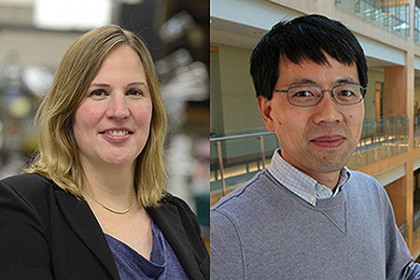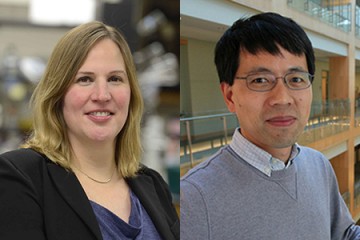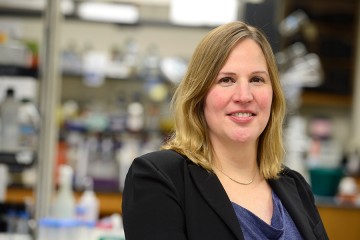Professors Sharon Gerecht and Hai-Quan Mao will assume leadership duties for Johns Hopkins University's Institute for NanoBioTechnology, effective Jan. 1, 2017.

Image caption: Sharon Gerecht (left) and Hai-Quan Mao
Image credit: Will Kirk / Homewood Photography and Mary Katz
Gerecht, a professor in the Department of Chemical and Biomolecular Engineering, will serve as the institute's director. Her research focuses on stem cells and their microenvironment, especially as applied to tissue repair and regeneration. She was the winner of the inaugural President's Frontier Award in 2015 and will succeed Peter Searson, INBT's founding director.
Mao is a professor in the departments of Materials Science and Engineering and Biomedical Engineering, and currently holds a joint appointment in the Translational Tissue Engineering Center at the School of Medicine. He will serve as INBT's associate director, succeeding Denis Wirtz, JHU's vice provost for research. Mao's research is focused on engineering novel nanostructured materials for nerve regeneration and therapeutic delivery. He won the University's 2015 Cohen Translational Engineering Award and a 2015 Johns Hopkins Discovery Award.
"Both Sharon and Hai-Quan embrace INBT's original vision, which seeks to bring together researchers from diverse disciplines to solve problems at the interface of nanotechnology and medicine," Searson said. "Their contributions to multidisciplinary research, commitment to technology transfer, and vision in educating the next generation of leaders in nanobiotechnology made Sharon and Hai-Quan ideal candidates for the job."
INBT was launched in May 2006 with $4 million in funding provided by U.S. Sen. Barbara Mikulski to promote multidisciplinary research at the interface of nanotechnology and medicine. The institute has more than 250 affiliated faculty members conducting research across the university. Croft Hall, the 26,000-square-foot laboratory space on Homewood campus, serves as a headquarters for INBT activities and allows researchers from the schools of Engineering and Medicine to collaborate under one roof. Since its launch, INBT researchers have generated more than $80 million in research funding.
Searson and Wirtz will both remain at Johns Hopkins University after stepping down from their positions at INBT.
Posted in Science+Technology, University News









